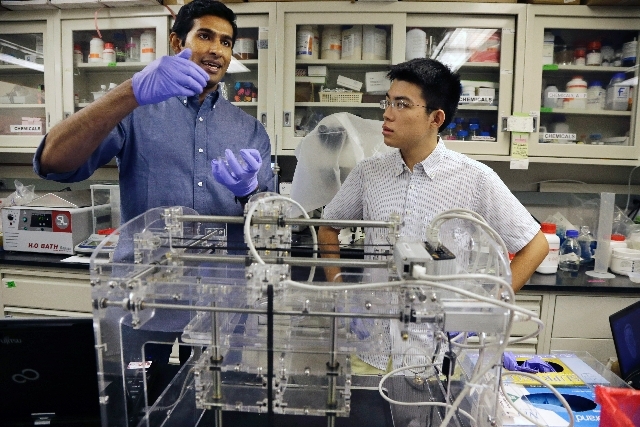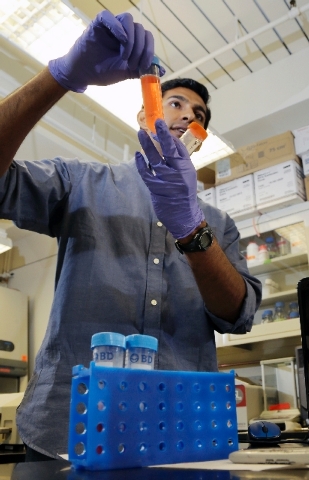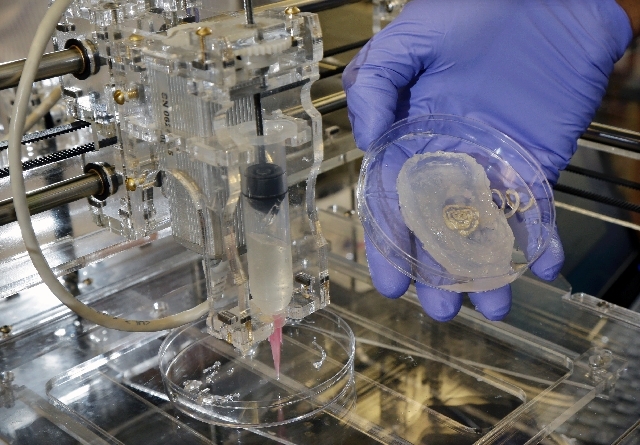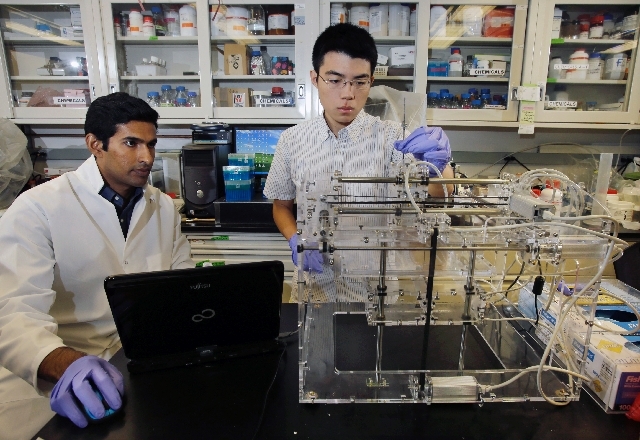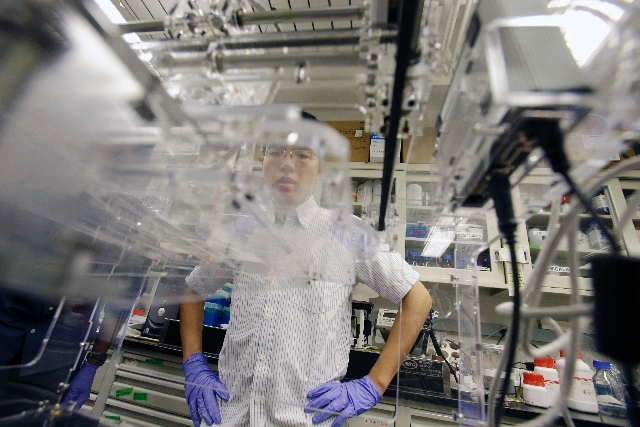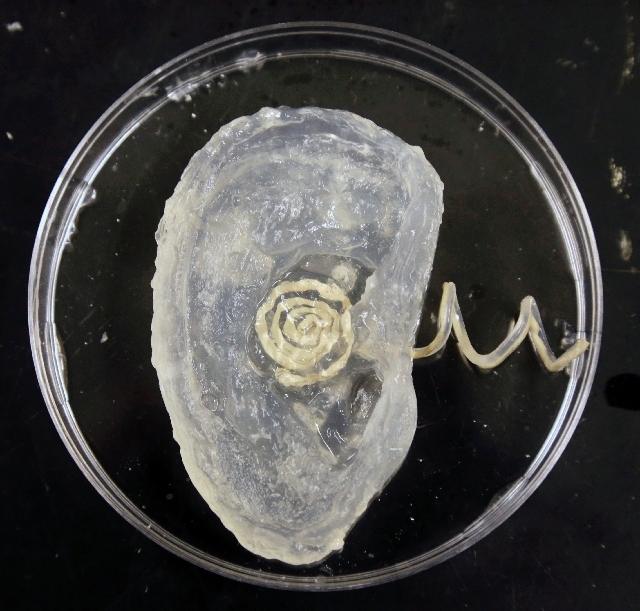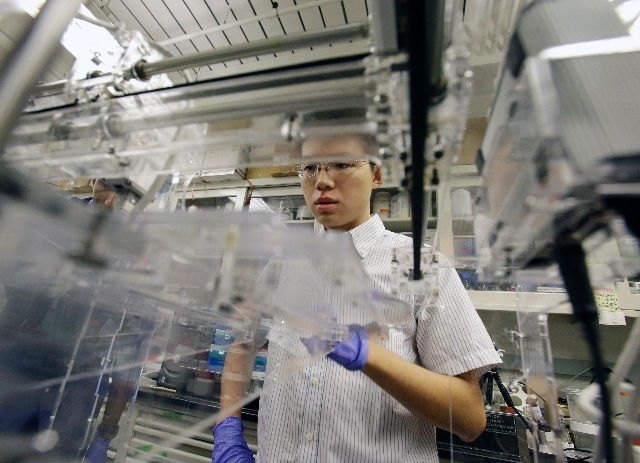Princeton University creates bionic ear
PRINCETON, N.J. — Researchers at Princeton University have brought a new tool into the realm of cybernetics: a 3-D printer.
The scientists have devised a way to produce an ear-shaped chunk of silicone mixed with bovine cells and infused with tiny particles of silver that form a coiled antenna. Like any antenna, this one can pick up radio signals that the ear will interpret as sound.
The 3-D ear is not designed to replace a human one, though; the research is meant to explore a new method of combining electronics with biological material.
“What we really did here was actually more of a proof of concept of the capabilities of 3-D printing,” said Michael McAlpine, the professor who led the project. “Because most people use 3-D printing to print passive objects — things like figurines and jewelry.”
After it’s printed, the 3-D ear is soft and translucent. It is cultivated for 10 weeks, letting the cells multiply, creating a flesh color and forming hardened tissue around the antenna.
Manu Mannoor, a graduate student who worked with McAlpine on the project, held up a petri dish in a lab at Princeton last week to show how the process works. The dish was filled with liquid and a partly cultivated ear, and Mannoor said the cells were secreting a matrix, the space between cells that exists in organisms.
“They make their own living space,” Mannoor said.
McAlpine and his team demonstrated the antenna’s ability to pick up radio signals by attaching electrodes onto the backs of the ears in the printing process. When they broadcast a recording of Beethoven’s “Fur Elise” to a pair of fully cultivated ears, the electrodes passed the signal along wires to a set of speakers, and the music flowed out clear and without interference.
Although the new research is just one iteration in the field of cybernetics — an area that looks at combining biology with technology — McAlpine said the research could lead to synthetic replacements for actual human functions, and to a sort of electronic sixth sense.
“As the world becomes a more digital and electronic place, I think ultimately we’re going to care less about our traditional five senses,” he said. “And we’re going to want these new senses to give us direct electronic communication with our cellphones and our laptop devices.”



